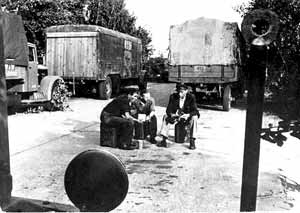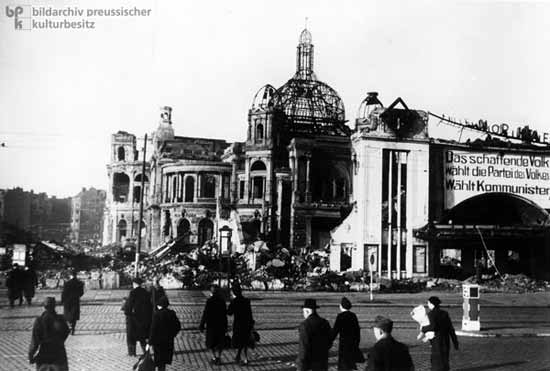The Blockade Begins
On 19 June 1948 after a period of increasing tensions the Soviet Military Administration of eastern Germany released a grim, but not unexpected announcement:
In connection with the currency reform the Soviet Military Administration has been forced to take the following measures in order to protect the interests of the population and the economy: All travel to and from the Soviet-occupied zone of Germany is suspended. Entry is refused to vehicular traffic of every sort coming from the Western zones, including all traffic on the highway between Helmstadt and Berlin.1

Soviet road blocks which interrupted regular commerical traffic left hundreds of vehicles stranded. Image Source: History Images.
All ground and water communication routes between the occupied city of West Berlin and the outside were eventually blocked. The intentions were to force the Western powers to concede Soviet control over the entire city. It was among the first serious Cold War confrontations in a dangerous game of brinksmanship between former wartime allies of the East and West.
Weighty Decisions
While the world waited in silence leaders on both sides weighed their options. In what would become one of the defining moments of early Cold War brinksmanship both the East and West tested their resolve and sought answers to questions that would shape the future of post-war Germany and the world:
Would the Western Allies honor their committment to the people of West Berlin?
Would the Soviet leaders risk a major military confrontation?
How would future relationships between the East and West be affected?
How would the German people react?
This is the story of the West's committment to the people of Berlin and to freedom.



